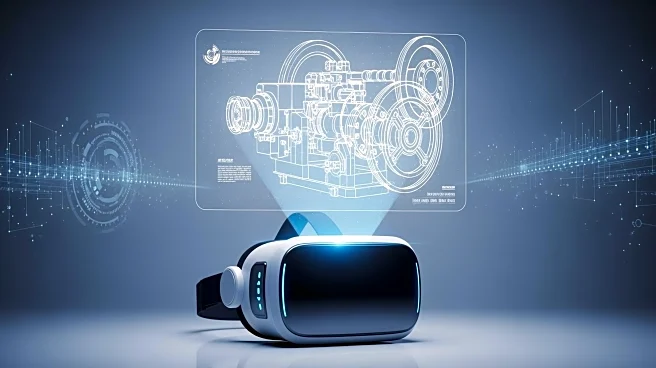What's Happening?
Transfr Inc., a workforce education company, has launched Transfr Train, a collection of XR-based career training programs aimed at improving skills acquisition and employment readiness. The initiative
includes over 330 VR simulations, online learning, and interactive virtual coaching. The programs cover fundamental skills such as workplace safety and electrical fundamentals, and pre-employment programs for roles like Construction Laborer. Transfr's approach aims to bridge the gap between education and employment, providing clear pathways for learners to gain competencies recognized by employers.
Why It's Important?
The launch of Transfr Train addresses the critical gap in workforce readiness by providing immersive training that aligns with employer needs. This initiative is significant as it offers a solution to the disconnect between job seekers and employers, potentially reducing unemployment and underemployment. By equipping learners with practical skills, Transfr supports the development of a skilled workforce, which is essential for economic growth and competitiveness in high-demand sectors. The program's success could lead to increased job placement rates and better career outcomes for participants.
What's Next?
Transfr plans to enhance its career exploration solution, Transfr Trek, with financial literacy education and expanded career options. A webinar is scheduled for November 6 to provide more information about these innovations. The company aims to continue expanding its reach and impact, potentially influencing workforce development policies and practices. As more institutions adopt Transfr's programs, there could be a shift towards more experiential learning models in education and training.
Beyond the Headlines
Transfr's approach highlights the growing importance of technology-driven education solutions in addressing workforce challenges. The use of VR and digital badges represents a shift towards more interactive and engaging learning experiences. This development could influence how educational institutions design curricula, emphasizing practical skills and real-world applications. Additionally, the focus on non-degree careers reflects a broader trend towards valuing skills over traditional educational credentials.









